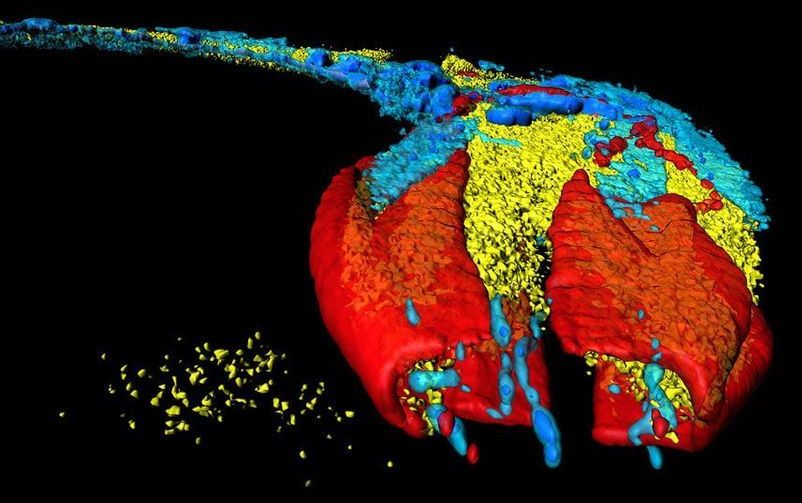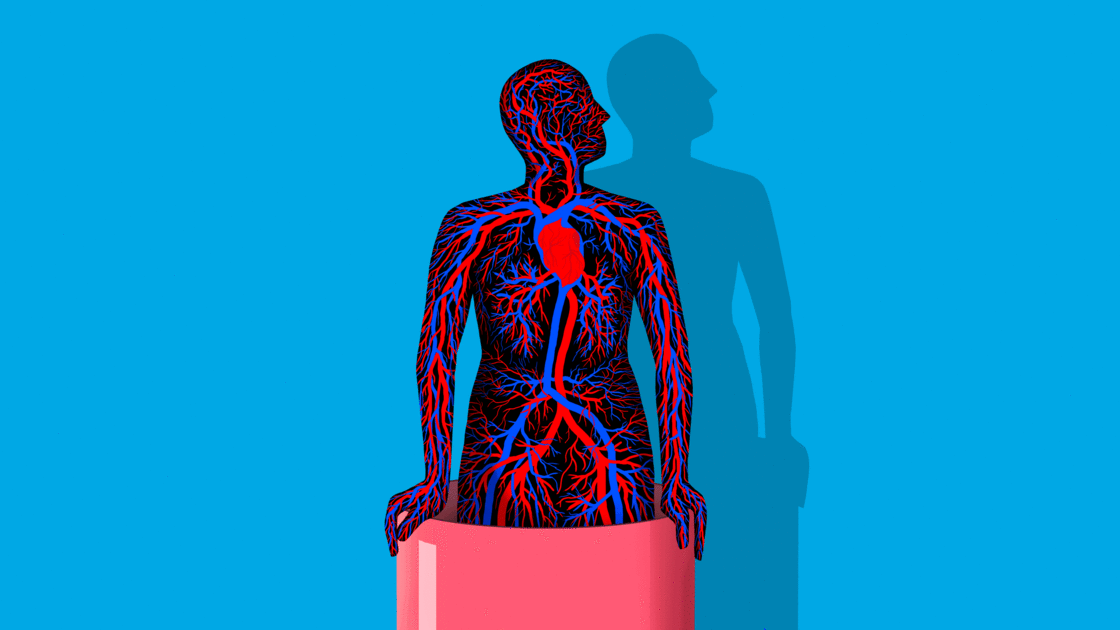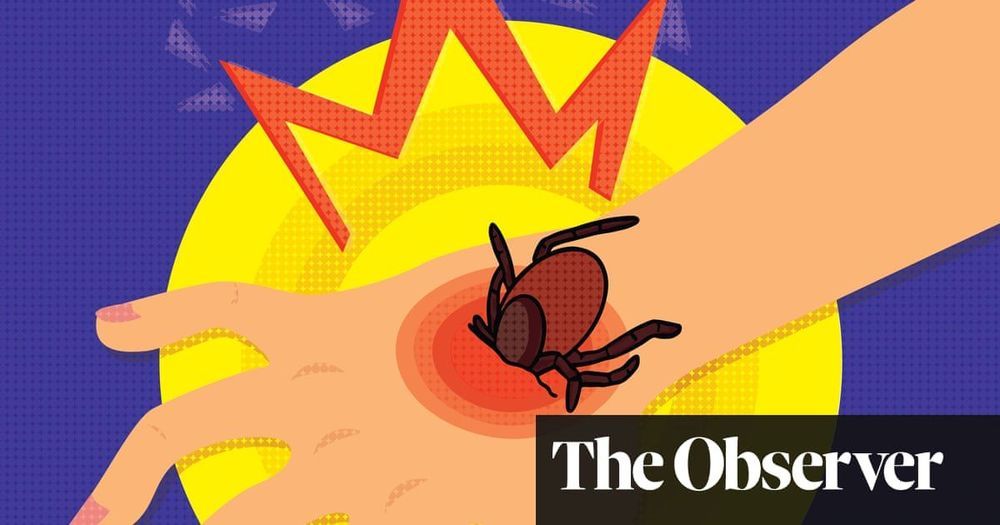Archive for the ‘biotech/medical’ category: Page 2039
Jul 21, 2019
The First Complete Brain Wiring Diagram of Any Species Is Here
Posted by Paul Battista in categories: biotech/medical, information science, robotics/AI, sex
For a humble, microscopic worm with only 302 neurons, C. elegans has had a lot of firsts. It was the first multicellular animal to have its whole genome sequenced. It was also the spark that lit the connectome fire—the revolutionary idea that mapping the entirety of connections among neurons will unveil secrets of our minds, memory, and consciousness. And if the connectomists are to be believed, a map of individual brains may be the blueprint that will one day hurtle AI into human-level intelligence, or reconstruct an entire human mind in digital form.
More than 30 years ago, a pioneering group of scientists painstakingly traced and reconstructed the roundworm’s neural wiring by hand. The “heroic” effort, unaided by modern computers and brain-mapping algorithms, resulted in the first connectome in 1986.
Yet the “mind of the worm” map had significant lapses. For one, it only focused on one sex, the hermaphrodite—a “female” equivalent that can self-fertilize. This makes it hard to tell which connections are universal for the species, and which are dependent on sex and reproduction. For another, because the effort relied entirely on human beings who get tired, bored, and mess up, the map wasn’t entirely accurate. Even with multiple rounds of subsequent refinements, errors could linger, which would royally screw up any interpretation of results using these maps.
Jul 21, 2019
The Promise and Price of Cellular Therapies
Posted by Paul Battista in category: biotech/medical
New “living drugs”—made from a patient’s own cells—can cure once incurable cancers. But can we afford them?
Jul 20, 2019
Taking the sting out: Australian gene editing is crossing the pain threshold
Posted by Genevieve Klien in categories: bioengineering, biotech/medical
A Sydney team has developed a box jellyfish antidote so simple it can go on as a spray. But it’s only the first step.
Jul 20, 2019
What if you were immune to chronic pain?
Posted by Paul Battista in categories: biotech/medical, information science, neuroscience
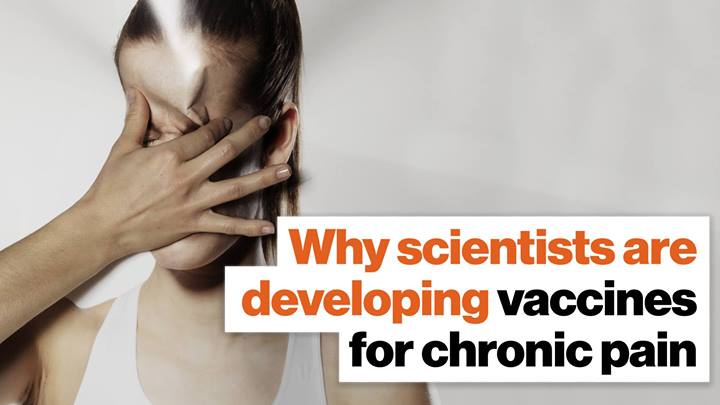
Our current approach to treating chronic pain is drug-based, but a vaccine-based approach can cut addiction out of the equation. In this video, Big Think contributor Lou Reese, co-founder of United Neuroscience, explains how soon we may soon be able to vaccinate people, en masse, against pain!
Jul 20, 2019
Can Learning a Foreign Language Prevent Dementia?
Posted by Genevieve Klien in categories: biotech/medical, neuroscience
The evidence is far less clear than popular media might lead you to believe.
By: richard roberts and roger kreuz
You may have heard that learning another language is one method for preventing or at least postponing the onset of dementia. Dementia refers to the loss of cognitive abilities, and one of its most common forms is Alzheimer’s disease. At this time, the causes of the disease are not well understood, and consequently, there are no proven steps that people can take to prevent it. Nonetheless, some researchers have suggested that learning a foreign language might help delay the onset of dementia.
Jul 20, 2019
Lyme disease: is a solution on the way?
Posted by Genevieve Klien in category: biotech/medical
The tick-borne illness, which is on the rise, can have chronic side-effects. So why hasn’t more effort been put into a cure?
Jul 20, 2019
AAPM 2019: medical physicists assemble in Texas
Posted by Genevieve Klien in category: biotech/medical
At this year’s meeting of the American Association of Physicists in Medicine, the temperature was scorching and the physics was exceptional.
Jul 20, 2019
Aging Well – Aubrey de Grey, PhD, Co-founder of SENS Research Foundation – Taking the Fight to An… — YouTube
Posted by John Davies in categories: biotech/medical, life extension
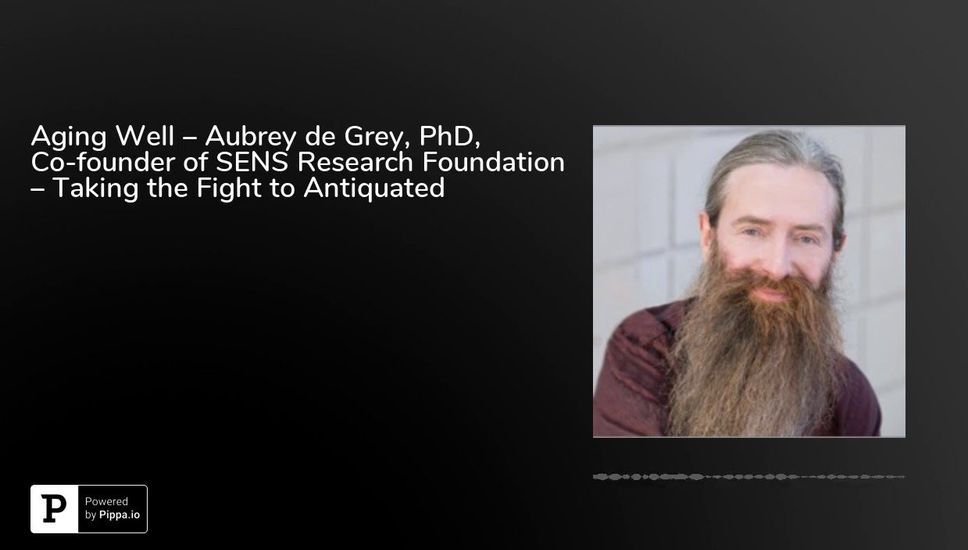
In this podcast, Aubrey de Grey, Ph.D., and the Chief Science Officer/Co-founder of SENS Research Foundation discusses his fascination with aging and his ongoing efforts to change the way we think about, and treat, age-related conditions. Dr. de Grey is a biomedical gerontologist and the innovative developer of the SENS platform. He is a Fellow of the Gerontological Society of America and the American Aging Association. He received a Ph.D. in Biology from the prestigious University of Cambridge. Dr. de Grey states that aging is the greatest medical problem we face as it causes the most suffering. He discusses the various excuses that are given as reason to simply disregard aging as a field in need of greater research, from the standard, ‘everything ages, just accept it,’ to the more philosophical—‘death, by its existence, gives meaning to life,’ and the social excuse—‘treating aging in a new way would only create new problems that could be much worse.’ But according to Dr. de Gray, not a single excuse holds up, all fall to the slightest scrutiny when really considered. Dr. de Grey explains that in order to design and implement therapies that will prevent the health problems of an aging population, we need to learn from what has already been proven and acknowledged in the past. SENS Research Foundation seeks to develop and promote access to innovative new therapies that can cure or possibly even prevent the diseases and difficult, troubling disabilities of aging by repairing built-up damage in our bodies. Wrapping up, Dr. de Grey explains cell therapy and damage, loss of cells, and the processes needed to bring about the repair. And the doctor goes into detail regarding the injection of stem cells to repair the damage, replace lost cells, etc.
Jul 20, 2019
Compound with anti-aging effects passes human trial
Posted by John Davies in categories: biotech/medical, life extension
Urolithin A, a metabolite of biomolecules found in pomegranates and other fruits, could help slow certain aging processes. EPFL spin-off Amazentis, in conjunction with EPFL and the Swiss Institute of Bioinformatics, has published a paper Metabolism outlining the results of their clinical trial.
It is a fact of life that skeletal muscles begin to lose strength and mass once a person reaches the age of 50. A recent clinical trial involving two EPFL entities — spin-off Amazentis and the Laboratory of Integrative Systems Physiology (LISP) — showed that urolithin A, a compound derived from biomolecules found in fruits such as pomegranates, could slow down this process by improving the functioning of mitochondria — the cells’ powerhouses. A joint paper presenting the results of the trial also demonstrates that ingesting the compound poses no risk to human health.
Slowing mitochondrial aging.

